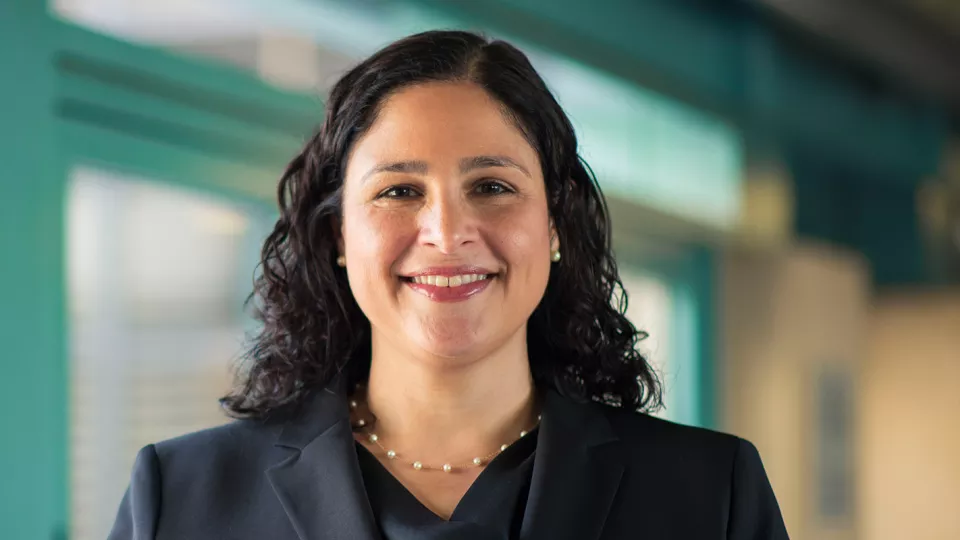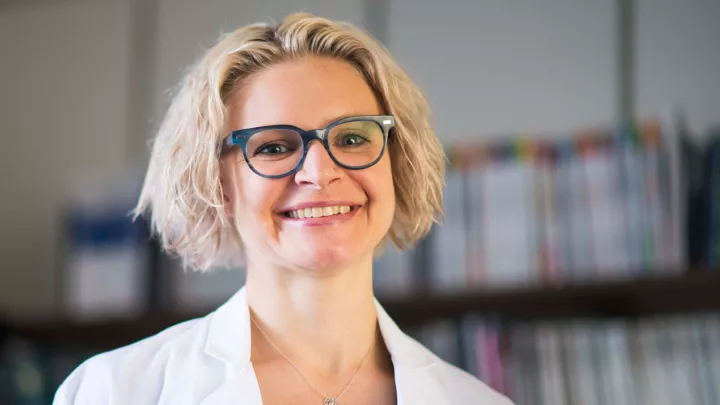
Lara M. Khouri, MBA, MPH: Getting Things Done
Five Questions
1. What did you say when you were a young girl and someone asked: “What do you want to be when you grow up?”
I was interested in being a lawyer, because a family friend that I admired was an attorney. I always liked the idea of fighting for people who needed an advocate. One thing I knew I didn’t want to do was be an ophthalmologist. My dad was an eye doctor and insisted that I join him to observe surgery many weekends. He thought it would inspire me to become a surgeon, but it helped me realize that I didn’t want to be one! At the same time, I got to see my mother working as an administrator—she ran my father’s practice. I preferred working on the business and operational side of things, and that was my first introduction to health administration.
2. When did you realize you wanted to be a leader?
I realized I wanted to be a leader only after I had a chance to be in leadership roles. Starting in elementary school, I enjoyed participating in student government and extracurricular activities. On a few occasions, I wanted to be involved in activities that didn’t exist, so I became a leader by default. I found that I enjoyed the challenge, and that I liked to build and start things. Over time, I became more comfortable with leadership. But I did not seek leadership positions for leadership’s sake; it was always in service of something I wanted to do or get done.
3. Name a challenge you faced in your journey to where you are now.
Most of the obstacles I’ve faced in my career have been standard-issue challenges—getting passed up for a promotion, struggling to balance work and life, and navigating geographic changes with my wife to support both of our careers and our preferences for where we live. I try to see challenges as opportunities—but I appreciate that it’s easy to say that when one is not facing major obstacles or threats.
4. Did anyone say to you, "You can’t do that because you’re a girl?"
I’m sure somebody said that to me at some point, but I don’t tend to listen much to naysayers. I remember being concerned that being a woman would make it difficult for me to get into business school. I was excited to attend Columbia Business School, where women were less than half the class at that time, but growing. I found the environment to be a nurturing and hospitable one—and one that recognized that women were a minority in the school and, more importantly, in business. This meant that structures were put into place by the school and the student body to address under-representation and workplace barriers to growth and career success. These intentional structures made a difference in setting a level playing field. They also helped me appreciate the importance of intentionally attending to the needs of underrepresented groups in the workplace.
5. What would you tell a young girl right now who wants to be a leader?
I’d say three things:
- Practice. Identify opportunities to lead. You’ll learn by doing. You’ll make lots of mistakes and the earlier you start, the less there is to lose and the faster you’ll learn.
- Find role models. Find others whose leadership you appreciate. Mentors are valuable and can provide advice, role model good behavior, and act as a sounding board. Also, choose diverse mentors—people with different life experiences and interests.
- Do things you love. Get involved with leadership in activities that you enjoy. As a leader, your passion and commitment is part of how you can inspire and motivate others. If you don’t enjoy what you are doing, it will be harder to be taken seriously as a leader.
Lara M. Khouri is senior vice president and chief strategy officer at Children’s Hospital Los Angeles and the Children’s Hospital Los Angeles Medical Group.


